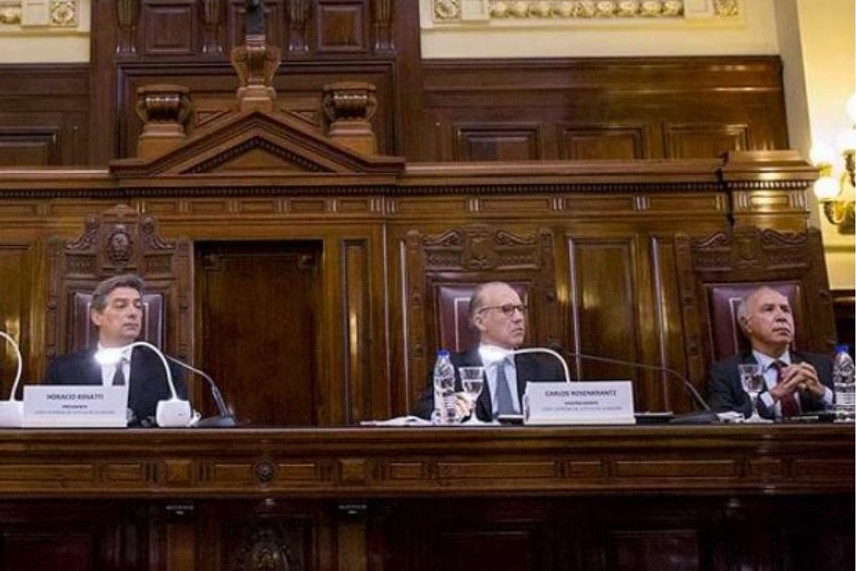
The Supreme Court of Justice of the Nation confirmed the conviction against Cristina Fernández de Kirchner in the road case: six years in prison and perpetual disqualification to exercise public office. With this ruling, a sentence of enormous institutional severity is consumed, not only for its personal impact on a central political leader in the country’s recent history, but for what it represents for the Argentine political regime: the imposition of a judicial proscription.
A court of three judges that decides on 45 million people
The ruling was issued by a court made up of only three members, Rosatti, Rosenkrantz and Lorenzetti, when the law provides that it should be composed of five. This atypical conformation is not a minor fact. It is a minority – three people – with a huge power, enough to define the political and institutional course of an entire country.
This weakness already shows one of the symptoms of the deep crisis of the regime that subsists, subtracting legitimacy from decisions only with three members. But even if there were five, seven or more, the underlying problem persists: the aristocratic character of the Argentine Judiciary is rooted in each of its aspects.
The court judges are not chosen by the people. Its designation is the result of negotiations between the Executive Power and the Senate, a mechanism completely oblivious to the popular will. Once appointed, they occupy their life positions, without revocability or democratic control and enjoying huge material privileges: millionaire salaries that amount to at least eight million pesos, privileged retirements, and a fact in fact immunity against any accountability. They are, in full, A true political caste. But a castle that does not even have to go through the polls.
This system is designed to ensure that The Judiciary is more permeable to the business and political lobby than to the needs and rights of popular majoritieswhich govern from the distance of their offices. And when this system acts together with friends of economic power, Judicial operators linked to Macrismo and great hegemonic media They condemn before the courts, the result is a perverse machinery where the judgments are assembled from the holders, and the sentences are written before the defendants can defend themselves.
Undoubtedly, corruption crosses the different governments, but there is also no doubt that it also travels to the Judiciary, therefore, the investigation and judgment process is compromised, as it was in this case. The condemnation of Cristina Kirchner is the result of that framework: a judicial process loaded with political interests from its beginning to its outcome, amplified by a war journalism that installed common sense before legal arguments, and closed with a ruling of a supreme court whose democratic legitimacy is at least questionable. It is not justice: it is proscription.
And the most serious is that this proscription is not an isolated fact. It is part of a broader advance against democratic freedoms. We see it in the systematic attack on freedom of association, in the criminalization of the right to protest, in the constant attempt to discipline those who think differently.
Therefore, beyond the personal positions about Cristina Kirchner, what is at stake is much deeper: the right of the population to freely choose their governments. When the Judicial Power runs over it, it confirms its nature as an instrument of power, with increasingly authoritarian features.
Despite the repeated speeches of the former president, highlighting these features, in none of her three governments, which would be four including that of Nestor Kirchner, there was a deep decision to advance reforms on this antidemocratic power, not even minimal. On the contrary, the governments of the traditional parties when assuming seek to consolidate through sustaining and feeding it, having favorable or allied judges, and Kirchnerism was no exception.
Faced with this sentence of the Court, the demonstration that rejects and questions this Judiciary is urgent: starting with the independent mobilization by calling the active strike in each union, demanding the centrals such as the CGT and CTA, with assemblies and a struggle plan to defeat the proscription, and continuing to discuss the basis of the judicial system that responds to the economic and political interests of the dominant sectors, against the needs of the dominant sectors, against the needs of the dominant sectors great popular majorities and their most elementary rights.
Source: www.laizquierdadiario.com

